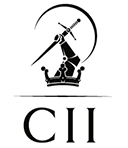When was the last time you reviewed your protection?
Although most of us would not leave our car, household or travel insurance to chance, taking care of ourselves and our loved ones if we suffer ill health or die is surprisingly more often overlooked.
Below is a brief guide to the different forms of protection available which can give you and your family security:
Life Assurance
This common form of protection is usually used to provide a lump sum of capital to repay a mortgage and other outstanding debts in the event of your death. You may wish to increase the amount of cover to provide an additional amount for your dependents should they rely on you financially.
Life Assurance is also used to provide a lump sum to be made available on your death to beneficiaries if your estate is subject to inheritance tax.
The cost will depend on the level of cover, your age, health and the term that you require the cover to last. There are many variations on a basic policy, such as allowing more than one life to be insured, allowing premiums and the amount of cover to vary and including other types of benefit within the same policy.
Whole of Life Insurance
This type of Life Assurance guarantees to pay out in the event of death, whenever it occurs. For a given premium, cover is provided for your whole life. The premium you pay can either be purely for life cover, in which case it is guaranteed, or it could also include an investment element which could provide a cash-in value should the cover no longer be needed in future.
Premiums can be fixed or reviewable throughout life, and the way in which the policy if structured will depend on the purpose for which it is required. As with any type of life assurance the cost will also depend on the level of cover, your age and health at the time the policy is taken out.
Critical Illness
Critical Illness cover provides a lump sum in the event of the diagnosis of a specified critical illness. With continuing advances in medical science, many more people survive and recover from serious illness to live for many years. They may, however, temporarily or permanently have reduced earnings, or simply wish to make lifestyle changes and reduce financial pressures.
Whilst critical illness cover is very important to those with dependents, it may be equally important for single people who have no other source of income or financial support in the event of being unable to work.
Due to the nature and scope of the cover, it is more expensive than simple life assurance. The amount of cover, the term, whether you smoke and your health history will determine the cost. It is also essential to check the full scope of the illnesses covered by the policy.
Income Protection
The inability to work due to illness or injury can have serious consequences if you do not have sufficient savings and investments to support you. With more people opting for self-employment and as only a minority of employers support their staff for more than a short period you may have considered how you would cope financially should this happen.
Formerly known as ‘permanent health insurance’, income protection is an insurance policy designed to replace a percentage of your gross income, should you be unable to work due to accident or sickness. It pays out until you can start working again, or until you retire, die or the end of the policy term. You can claim as many times as you need to while the policy is in force. Both short term and long term policies are available depending on your circumstances and needs.
The cost depends on the amount and type of cover, your age, your health and your occupation. You can set the payment to start after your sick pay ends, or after any other insurance stops covering you. You can also lengthen the period before payouts begin, should you feel able to support yourself for an initial period. The longer you wait, the lower the premiums will be.
Before you consider Income Protection, check with your employer if they provide any cover and for how long you would receive a payment. It is important not to over insure as payouts are restricted if you do.
Why use a Trust?
Few people write their life insurance in trust, but most should. First, inside a trust, any payout remains outside the policyholder’s estate for inheritance tax purposes.
Second, it speeds up payment following death, as there is no need to wait for probate. The third main advantage is that it allows the policyholder to specify exactly who should benefit from the money and how it should be paid. The proceeds of any claim are typically held in trust until the beneficiary is eligible to receive them, for example when they reach a certain age.
BUSINESS PROTECTION
Shareholder Protection
This form of insurance protects a company and its shareholders against the critical illness or death of an owner or shareholder in the company.
In the event of a business owner or shareholder dying or being diagnosed with a terminal or specified critical illness, shareholder protection can provide the necessary funds to allow the remaining business owners to buy out the departing shareholders interest in the business, thereby retaining control and continuity.
Key Person Insurance
Reduced sales, loss of profits, wasted time, recruitment costs. Several issues can arise and have a crippling effect on a business should something happen to a ‘key person’.
Key Person Insurance helps safeguard the business in the event of death or diagnosis of a specified critical illness.
This protection insures the life of the key business employee, but is owned by the business. Should a claim arise, the policy would inject a cash sum into the business to lessen the financial repercussions.
The business pays the premiums and can be tax deductible subject to HMRC criteria being met.
If you want to know more about any of the above, contact us for an informal chat. We can help you tailor your protection needs to your personal circumstances and review the market to obtain the most competitive premiums.
Inheritance tax planning and trusts are not regulated by the Financial Conduct Authority.


In this period of unprecedented global economic uncertainty, financial decision making is like walking through a minefield. Drawing on their many years of accumulated expertise, Barker Owen have enabled me to chart my way through the complexities to make informed choices. I have found the company extremely professional in all respects
Joanne Owen provides a unique service of personal and professional excellence with an ethical attention to detail whilst at the same time building strong relationships of trust and confidence in all aspects of her financial advice.
Joanne helped us enormously and guided us through the new pension regulations advising us on the best, most tax efficient way to structure our pension benefits. She explains everything clearly and patiently and is always ready to answer questions. She is very professional, but most of all we have been struck by the time she is willing to take to make sure we understand the options and are happy with our decisions.

